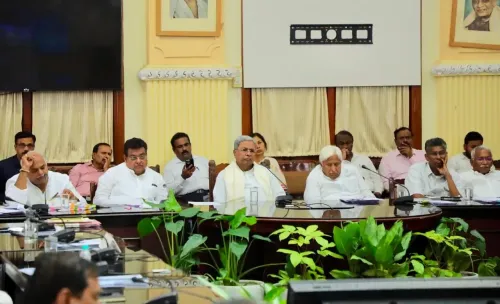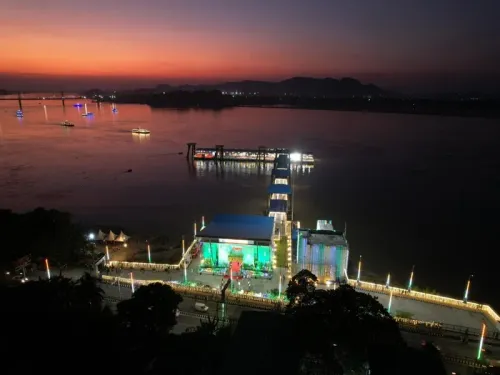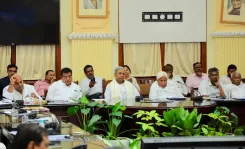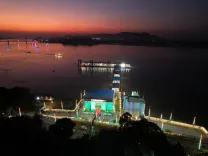Celebration of Nupi Lal Day in Tripura, Assam & Bangladesh; Honoring Women Freedom Fighters
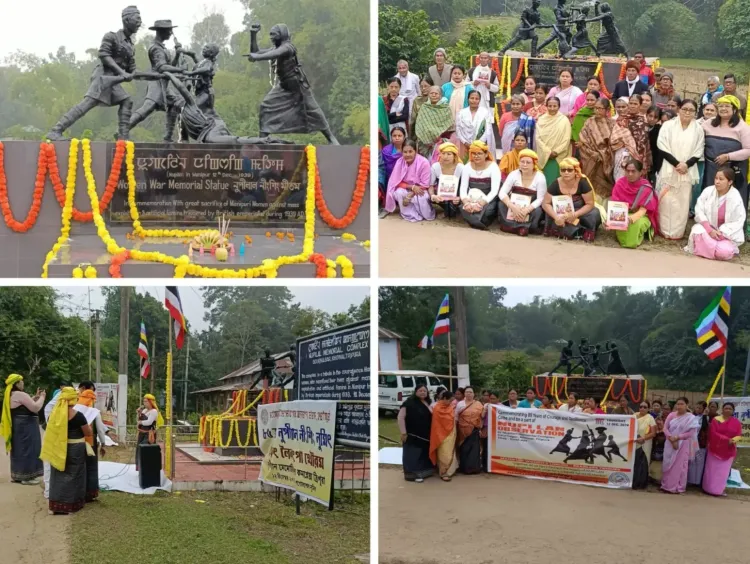
Agartala/Silchar, Dec 12 (NationPress) The momentous Nupi Lal (women’s war) day was celebrated in Tripura, Assam, and Bangladesh along with Manipur to honor the brave women freedom fighters who participated in the battle against colonial British oppression in 1904 and 1939.
This iconic day marks the 85th Nupi (women) Lal (war) Numit (day) on Thursday.
Renowned Manipuri intellectual Raj Kumar Tarunjit Singh mentioned that the people of Manipur, regardless of their location across the country and abroad, commemorate this day each year with significant enthusiasm and solemnity.
“Numerous activities, including the laying of floral tributes and panel discussions, took place during the observance of Nupi Lal day in Khowai (Tripura) and Cachar and Nagaon districts of Assam,” Singh informed the media in Agartala.
According to reports, the day was also recognized in the Sylhet and Moulvibazar districts of Bangladesh.
The Nupi Lal or Nupee Lal represents a pivotal struggle that erupted on December 12, 1939, against a highly exploitative socio-economic and political system imposed by the combined feudalistic-colonial rule in Manipur.
The main observance occurred at the Nupee Lal Memorial complex and Ghanapriya Women’s College in Imphal.
Manipur Chief Minister N. Biren Singh and Forest, Environment and Climate Change Minister Biswajit Singh addressed the gatherings, emphasizing the importance of the day.
During the Nupi Lal Ningshing Lamjel, a commemorative run honoring the historic Nupi Lal struggle, over 1500 women of various ages participated in Imphal.
The run began at the Nupi Lal Complex in Imphal and concluded at Singjamei, drawing participants from different parts of the state.
On December 12, 1939, numerous women besieged the state Durbar Office demanding an immediate halt to rice exports, during which approximately 21 women sustained serious injuries from the bayonets and rifle butts of soldiers.
The initial women's agitation was sparked by Colonel Maxwell's decision in July 1904 to reinstate the abolished Lallup System, compelling men to perform free labor for ten days every thirty days.
Following the arson of two British officials' residences in 1904, Maxwell temporarily reinstated the Lallup System to facilitate their reconstruction.
This decision backfired, prompting women to unite in protest against the injustice of enforced labor.
After the Anglo-Manipur War of 1891, Manipur fell under direct British control until 1907, when authority was granted to Raja Churachand Singh and his durbar.
However, a British political agent was appointed to supervise the region's governance, holding significant influence over the royal durbar, which had profound implications for Manipur's economy and trade.

